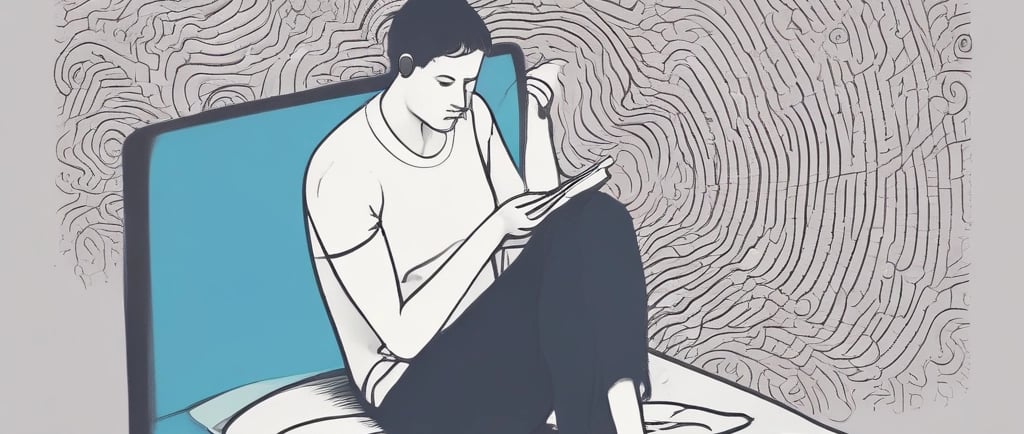Addressing Mental Health: The Impact of Screen Overuse on Anxiety, Stress, and Sleep
Dr. Shaista Naheed BPT.MIAP
10/18/20252 min read


Understanding the Behavioral Effects of Screen Overuse
In today's digital age, the prevalence of screens in the daily lives of children and adolescents has increased significantly. This surge in screen time is heralded by the convenience and connectivity that modern technology offers. However, it also raises critical concerns regarding mental health, particularly anxiety, stress, and sleep issues. The impact of excessive screen use is profound and warrants exploration, as it affects individuals and entire communities.
The Correlation Between Screen Time and Mental Health
Studies have shown a direct correlation between extensive screen time and the onset of anxiety and stress. The constant consumption of digital media can trigger feelings of inadequacy and anxiety as adolescents compare their lives with curated online personas. Furthermore, engaging in social media often leads to fear of missing out (FOMO), exacerbating stress levels. This digital exposure, especially before bedtime, can disrupt sleep patterns, reducing the quality and quantity of sleep, which is critical for both mental and physical health.
Initiatives for Support and Emotional Literacy
In response to these growing challenges, many schools and communities are implementing peer-support and emotional literacy programs. Such initiatives aim to foster healthier relationships with technology and promote mental well-being. Through structured activities, students are encouraged to discuss their experiences with screen time openly. These programs provide essential tools that help young people navigate their emotional landscapes, understand the behavioral effects of excessive screen use, and build resilience against anxiety and stress.
By integrating coping strategies and mindfulness techniques into these programs, communities are empowering youth to make informed choices about their screen time. As emotional literacy improves, young people become better equipped to manage their mental health, fostering an environment of support and understanding.
Moreover, engaging parents and guardians in these discussions is vital. Educating families about the importance of moderate screen usage and fostering healthy habits can significantly influence young individuals' perceptions and attitudes towards technology.
In conclusion, as awareness surrounding the mental health implications of screen overuse continues to grow, it is essential for schools and communities to actively implement programs that promote emotional literacy and peer support. By addressing anxiety, stress, and sleep issues head-on, these initiatives can cultivate healthier digital habits, ultimately enhancing overall mental well-being in today's youth.
👩⚕️ Consult Dr. Rahmath Fatima, MBBS, DNB🌟 Free Consultation: Every Sunday, 8–9 PM
💰 Other Days: Consultation Fee ₹300/- 👉 Click below to book an appointment!
Contact
Get in touch with us today.
Follow
Connect
info@nicehealth.in
+91-8500067980
© 2025 NiceHealth.in | infotube10x.com
Owned and Operated by ALFAWAZ ENTERPRISES, Alimuddin Mohammed |
under the management of Dr. Shaista Naheed BPT, MIAP
